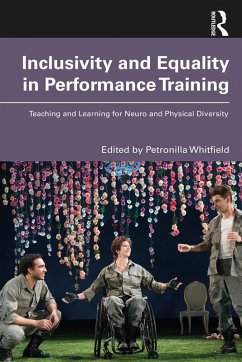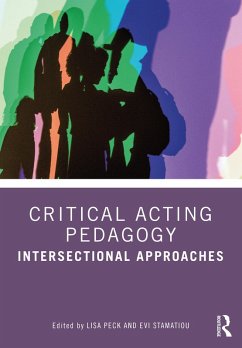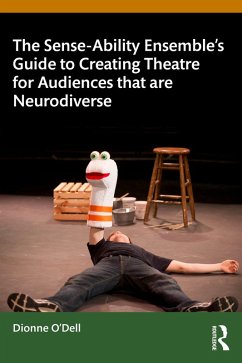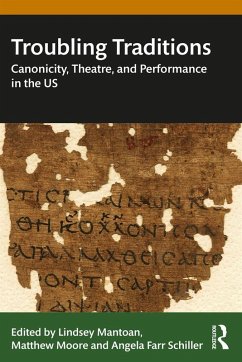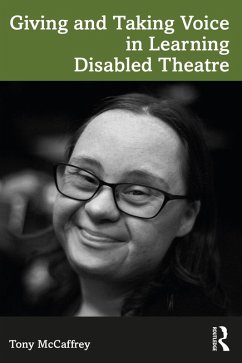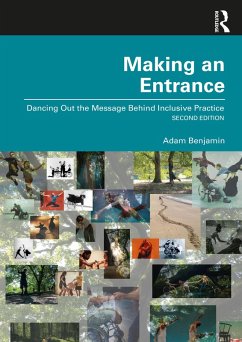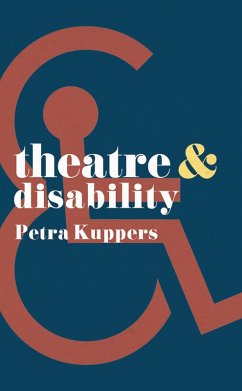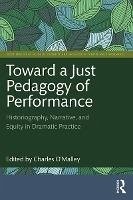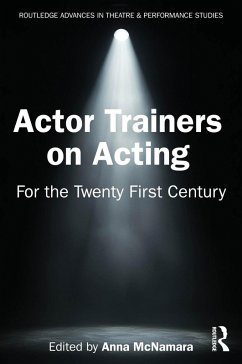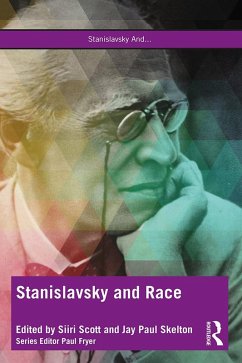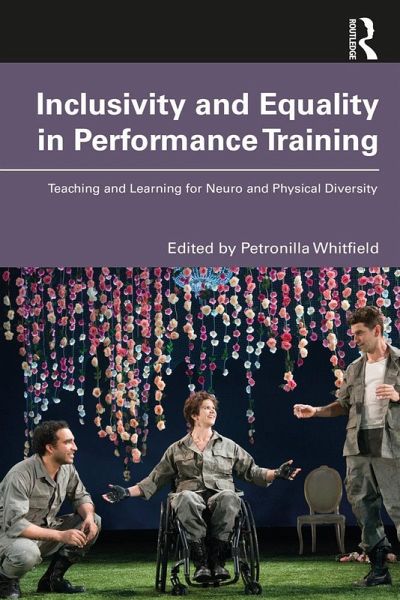
Inclusivity and Equality in Performance Training (eBook, PDF)
Teaching and Learning for Neuro and Physical Diversity
Redaktion: Whitfield, Petronilla
Versandkostenfrei!
Sofort per Download lieferbar
33,95 €
inkl. MwSt.
Weitere Ausgaben:

PAYBACK Punkte
17 °P sammeln!
Inclusivity and Equality in Performance Training focuses on neuro and physical difference and dis/ability in the teaching of performance and associated studies. It offers 19 practitioners' research-based teaching strategies, aimed to enhance equality of opportunity and individual abilities in performance education.Challenging ableist models of teaching, the 16 chapters address the barriers that can undermine those with dis/ability or difference, highlighting how equality of opportunity can increase innovation and enrich the creative work. Key features include: Descriptions of teaching interven...
Inclusivity and Equality in Performance Training focuses on neuro and physical difference and dis/ability in the teaching of performance and associated studies. It offers 19 practitioners' research-based teaching strategies, aimed to enhance equality of opportunity and individual abilities in performance education.
Challenging ableist models of teaching, the 16 chapters address the barriers that can undermine those with dis/ability or difference, highlighting how equality of opportunity can increase innovation and enrich the creative work. Key features include:
The chapter contents originate from practitioners in the UK, USA and Australia working in actor training conservatoires, drama university courses, youth training groups and professional performance, encompassing a range of specialist fields, such as voice, movement, acting, Shakespeare, digital technology, contemporary live art and creative writing.
Inclusivity and Equality in Performance Training is a vital resource for teachers, directors, performers, researchers and students who have an interest in investigatory practice towards developing emancipatory pedagogies within performance education.
Challenging ableist models of teaching, the 16 chapters address the barriers that can undermine those with dis/ability or difference, highlighting how equality of opportunity can increase innovation and enrich the creative work. Key features include:
- Descriptions of teaching interventions, research, and exploratory practice to identify and support the needs and abilities of the individual with dis/ability or difference
- Experiences of practitioners working with professional actors with dis/ability or difference, with a dissemination of methods to enable the actors
- A critical analysis of pedagogy in performance training environments; how neuro and physical diversity are positioned within the cultural contexts and practices
- Equitable teaching and learning practices for individuals in a variety of areas, such as: dyslexia, dyspraxia, visual or hearing impairment, learning and physical dis/abilities, wheelchair users, aphantasia, attention-deficit/hyperactivity disorder and autistic spectrum.
The chapter contents originate from practitioners in the UK, USA and Australia working in actor training conservatoires, drama university courses, youth training groups and professional performance, encompassing a range of specialist fields, such as voice, movement, acting, Shakespeare, digital technology, contemporary live art and creative writing.
Inclusivity and Equality in Performance Training is a vital resource for teachers, directors, performers, researchers and students who have an interest in investigatory practice towards developing emancipatory pedagogies within performance education.
Dieser Download kann aus rechtlichen Gründen nur mit Rechnungsadresse in A, B, BG, CY, CZ, D, DK, EW, E, FIN, F, GR, HR, H, IRL, I, LT, L, LR, M, NL, PL, P, R, S, SLO, SK ausgeliefert werden.




